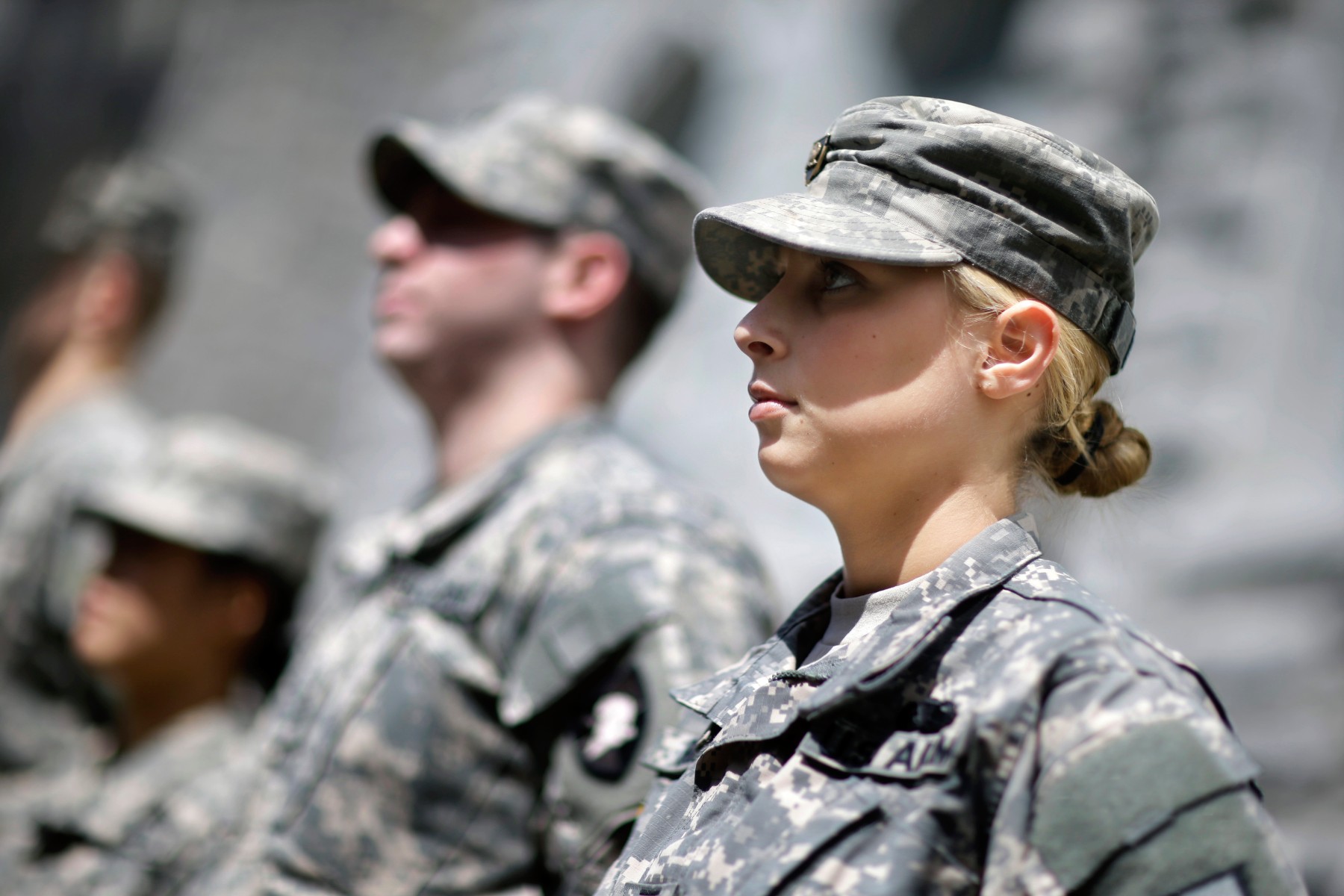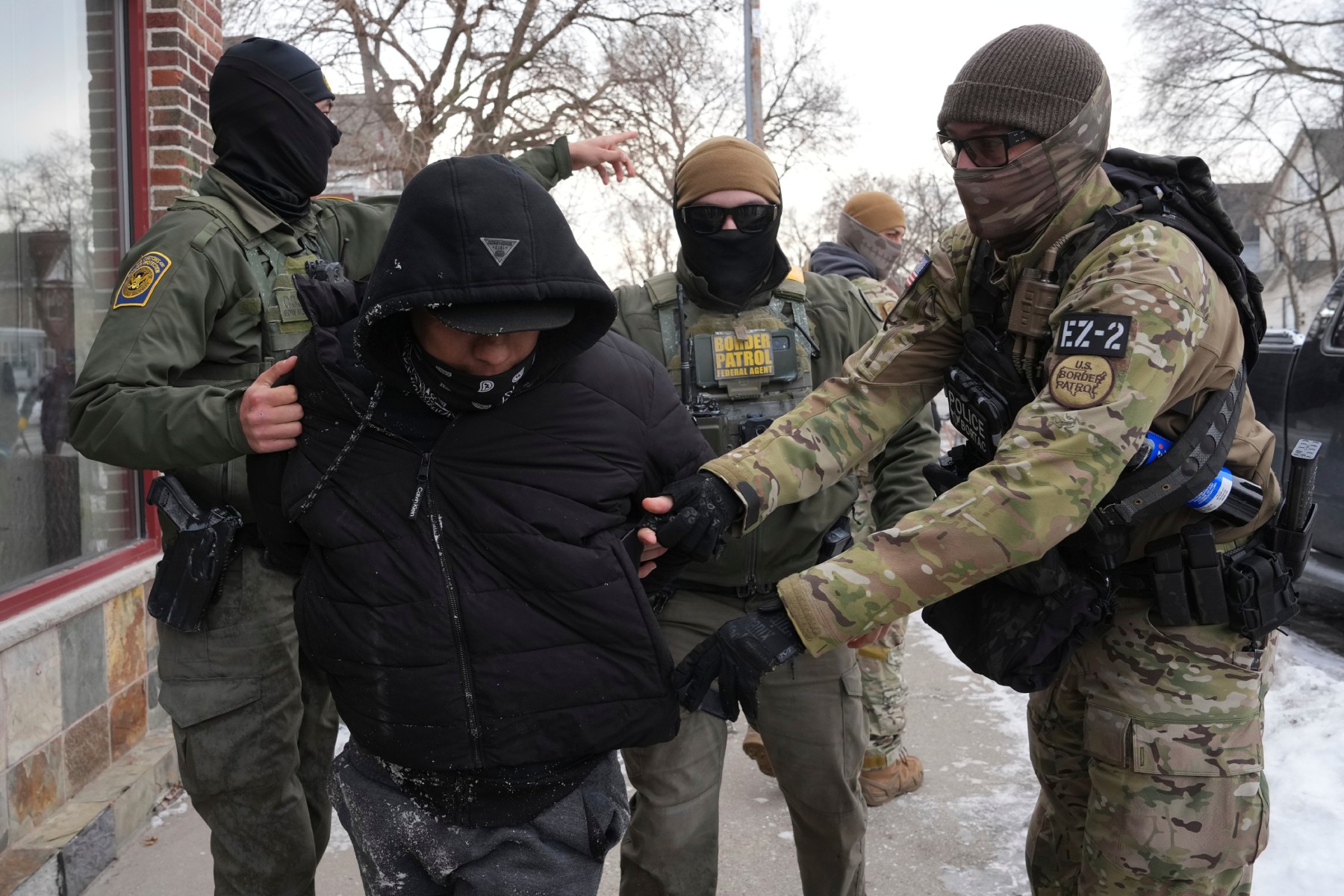In contrast to Congress, there has been serious movement at some state capitals on gun legislation since the Florida shooting. This week, we're talking about a few ideas in Colorado. Today, a proposal to stop people from getting guns when they show signs of violence.
Mary Blegen is a volunteer with Colorado Ceasefire. She proposes what’s known as a gun violence restraining order, a red flag warning, or an extreme violence protection order. It would allow a family member or possibly a member of law enforcement to go to a judge and get a temporary restraining order saying the person couldn’t buy a gun. Five states already have laws allowing such orders.
Yesterday, we spoke to a Columbine survivor who wants to get more guns in schools.
Read The Transcript
Nathan Heffel: This is Colorado Matters from CPR News. I am Nathan Heffel. In contrast to Congress, there is serious movement at some state capitols on gun legislation right now in the wake of the Florida shooting. This week, we're talking about a few ideas in Colorado. Yesterday, a Columbine survivor who wants to pave the way to get more guns in schools. Today, an idea on the other side: a way to stop people from getting guns when they show signs of violence. Mary Blegen is a volunteer with Colorado Ceasefire. Mary Blegen: Thank you for inviting me. NH: This idea is called a gun violence restraining order or a red flag warning. What exactly is this? MB: Well, it's a law that you pass, and then families and law enforcement can go to a judge in a civil court and ask for a temporary order to remove the guns from a person who is at high risk of harming himself or others. And so it provides law enforcement with a tool that they don't now have. Particularly in Florida, but also in the recent shooting in Colorado with the Sheriff's Deputy in Douglas County, the police and sheriff had lots of warning ahead of time in both of those but weren't able to actually go in and take that person's firearms. This law would allow them, through a civil court order, to do that on a temporary basis. It wouldn't be permanent. It'd be temporary. NH: And five states have this already, right? MB: Yes. That's correct. NH: What is your group suggesting here in Colorado, in terms of what types of people could get this order? Is it a concerned family member or maybe a boss? Who is able to get this order? MB: Most of these laws are written, and obviously, Colorado's isn't written yet, so we have an opportunity to do this, but it would be generally family members and law enforcement. NH: I see. MB: Some places have mentioned healthcare providers, but they aren't necessarily written into most of the laws. NH: It's pretty clear why this idea is getting traction in several states, post-Florida. There were a lot of redflags about the shooter. President Trump: This kid had thirty-nine red flags. They should have known. They did know. They didn't do anything about it. NH: That, from President Trump. But law enforcement didn't have the leeway to do anything about it because he hadn't broken the law, as far as we know. So that's the idea behind your effort, it seems… MB: Yes. It is. NH: ... to give more leeway. Still, a lot of gun rights people say there has to be due process here. We don't want law-abiding citizens to lose their gun rights, they say. But Cruz was a law-abiding citizen before hewent and shot up a school, so I really see this fine line. What kinds of behavior would make someone eligible to lose access to guns under one of these laws? MB: Well, that would be up to the judge. But the family members through law enforcement bring their description of that person's behavior, of their recent behavior, generally, but how much of a crisis they're in, how angry they are, how many guns they have, and what sort of threats they've made in the past. And then, the judge looks at that evidence and decides if that's sufficient to issue this temporary restraining order. NH: Is it pretty narrow in terms of what the judge can say, in terms of what things he's worried about? Do you know what I'm trying to say? MB: Yes, I think- NH: Narrowly tailored, I think would be the right word. MB: Judges would have to assess that evidence carefully in order for due process, and we are concerned about that as well. In order for due process to be handled properly, they would have to look at that evidence and decide. NH: Gun deaths of various kinds are going up in Colorado and they're high here compared with the rest of the country. So I wonder is your effort just about mass shootings and school shootings, or are you preventing other kinds of shootings too here? MB: No, and in fact, these kinds of laws in Connecticut and Indiana that have had them the longest, when they've done research on them, that they really show there is an impact on suicide rates. Because suicide is oftentimes, in Colorado for example, 70% of the gun deaths. By a family member going and saying, "I'm really concerned about my husband, my son, my whatever, that they're going to commit suicide," that would be another reason why this law could be called into effect. NH: So is that where the idea of a gun restraining order originally came from, with this thought to prevent suicide, or is it something else? MB: I think it really came from a variety of places. A number of scholars at John Hopkins, University of California, Harvard, had assessed all the evidence we had to that point and said, "What are the risk factors? How can we identify when someone is at that edge of doing something harmful like this?" They came up with a number of things, history of violence being one of them, but we try to take care of that through our background check laws. The alcohol and drug abuse is another one. Again, that becomes part of our background check laws. Being young, and our law now requires people to be 21 for hand guns and eighteen for long guns is another predictor in the background checks again. But anger and life crises are not in the background checks. That's the sort of thing that families would be able to use to convince the judge to remove the firearms. NH: I'm thinking about how this could work in practice. I don't think the families of the Columbine shooters had any idea what would happen there. And they got their guns illegal anyway. MB: Right. NH: Is there any sense of this restraining order idea could have prevented the attack, let's say at Aurora or other shootings we've seen recently? MB: In Aurora, we've got lots of news about that. And we do know that he was under psychiatric care. That, for months, they had recognized that he had difficulties at the University of Colorado. And I think, according to the papers. It had been reported to campus security. I don't know if it had gone beyond that, to the police or the sheriffs. But at any rate, with the laws in place at that time, he had not yet broken a law. So they really could not go in and take his firearms and explosives and the other things that he had. NH: And I know there's a thought of doctors, let's say, especially a mental health provider, like what we were talking about here, could prevent someone from getting a gun. That may raise other issues. I mean, we talked with Republican representative Patrick Neville, who's a guns rights advocate and a military veteran. And he's worried some vets suffering from mental health issues may not get the help they need, if they think they're going to lose access to a gun. Patrick Neville: I've talked to many mental health professionals who also worry that this would actually raise the stigma. And that's the last thing we want to do. We want to be allowing these people to actually go in and get their help and not doing anything that increases the stigma. NH: Is that something that you've thought about? MB: Yes. And I think mental healthcare providers are somewhat weary about this bill, leery because they don't want to break patient confidentiality for one. And they also don't want to prevent people from coming for care. But in the evaluations in Connecticut and Indiana, the largest things that were presented was suicide. And they also discovered that a lot of the people who's guns had been taken away temporarily, sought healthcare services, mental healthcare services. Which increased the rate at which people were getting, as opposed to preventing them or deterring them from ... NH: When you say temporarily, I want to back up a bit, how long are we talking about? Weeks? Months? MB: Okay. Typically, the initial order is a week to 21 days. One to three weeks. Then there's another hearing. At which time, not only the family and whatnot, then law enforcement, but the person who's guns have been removed can appear before the court. And then the court reassesses that evidence at that time. If they still think it's a risk, sometimes they can be removed for up to a year. And they would also be put on the list for prohibiting further purchase for up to a year. Other times, they've changed their minds. The evidence, the person is out of this crisis or whatever and they are allowed to have their guns back. NH: And so in practical terms, this order would come down. And then police would go to this person's home and say, hey, you need to give us these weapons? MB: Yeah. Right. NH: I want to talk about the support you've been trying to build for this in Colorado over the past few years. A conservative columnist, Krista Kafer wrote in the Denver Post last week that she supports this idea. Is there a bill in the legislature yet, or are you still trying to sell this idea to law makers? MB: Colorado cease fire has been working for two years to actually sell this bill to citizens and legislatures. We've had four different meetings around the state now where we've invited people to come and learn about it. Since the beginning of this particular session, we have been pushing very hard on the gun violence restraining order. Although in Colorado, by the way, that's called extreme risk protection order. But we have been pushing very hard in the legislature to convince them that this bill would be useful. I can't report that we have one at this time on the table, but we are working toward it. Also with the governor's office. NH: And I understand you're also trying to get this into the Democratic party platform here in Colorado? MB: Yes, we are. I think there are people in many counties around the state that will be introducing this as a platform plank. NH: But back to the legislature. In some other states, including Florida, some Republicans have started to advocate for this red flag law. So it surprises me that not even one Democrat has come forward here in Colorado to sponsor this. What do you think about that? MB: Well, of course we're disappointed. But we do have to recognize, remember in 2013, Colorado Ceasefire attempted to, and were successful at getting a number of bills passed. That was after the shooting in Connecticut in the school. And subsequent to that, two Republican, two democratic legislators were recalled. And a third decided to resign as opposed to facing further attempts to recall. And so I think the Democratic legislators in this state are understandably careful about what they decide to support. NH: I want to talk about the gun owners. Have you reached out to them? What are their thoughts on this? MB: We have a number of gun owners that are members of Colorado cease fire, actually. And they tend to support these sorts of rules too. Certainly they supported the background checks. Certainly they supported the restrictions on magazine size and they also support this bill. Poll wise across the country and there's new ones coming out each day, so I can't give the exact percentages, but a good bit of the United States, including gun owners, agree that this sort of a bill is a good idea. NH: And do you think that this is going to make a large difference if this bill comes to fruition, if it goes through the House and is approved, would it make a sizeable difference in your eyes to prevent gun deaths in the future? MB: It should. The states that have it now, the research that has been done, has shown it takes a little while for people to know about it, so that families know that they can go and use this tool, that law enforcement can help them use this tool. NH: But are the dynamics here different than in Connecticut or where these laws are already passed? MB: That's a good question. I don’t know. Colorado is known to be sort of the cowboy state, the Western state and in our rural areas we have a lot of people who do have guns and need guns in their daily life and there's nothing in this bill that would threaten that. It does make Coloradans a little bit more reluctant to support this kind of thing but I think this is just common sense. It just makes sense. NH: Thanks for being here. MB: You're welcome. NH: Mary Blegen is with Colorado Ceasefire. We talked about the group's proposal to allow family members and others to stop people from getting guns temporarily if they show signs of violence. This is Colorado Matters from CPR News. |









